Mission
The South Carolina Bar Young Lawyers Division (Division) was founded to foster principles of duty and service to the public, promote professional responsibility, stimulate the interest of young lawyers in Bar activities, conduct programs of interest and value to young lawyers, and to assist in the coordination and improvement of local young lawyer organizations.
The Young Lawyers Division (YLD) of the South Carolina Bar is comprised of all members of the South Carolina Bar in good standing under 36 years of age, or those admitted to the South Carolina Bar as their first bar within the past five years.
Our Purpose
The Division allows young lawyers opportunities to improve the image of the legal profession and fulfill their public service goals. The Division has numerous committees with special projects to be completed. It also coordinates social events to give young lawyers around the state opportunities to network and learn about each other.
YLD Committee Sign Up
The South Carolina Bar Young Lawyers Division (Division) was founded in 1974 to foster principles of duty and service to the public, promote professional responsibility, stimulate the interest of young lawyers in Bar activities, conduct programs of interest and value to young lawyers, and to assist in the coordination and improvement of local young lawyer organizations.
All lawyers practicing in South Carolina are licensed through the South Carolina Supreme Court and are mandatory members of the South Carolina Bar. All members of the South Carolina Bar in good standing under thirty-six (36) years of age, and those admitted to the South Carolina Bar as their first bar less than five (5) years are members of the Division.
The Executive Council is the governing body of the Division. The Executive Council is composed of a president, president-elect, secretary-treasurer, immediate past president, an out of state circuit representative, a circuit representative from each state's judicial circuit, the ABA/YLD representative (in alternating years), a law student representative for the University of South Carolina Law School and from the Charleston School of Law, and others appointed by the Division President during his or her term as President.
The Division is an affiliate of the Young Lawyers Division of the American Bar and sends representatives to the annual and midyear meetings and to spring and fall meetings of the Affiliate Outreach Project. As a member of the American Bar Association Young Lawyers Division, the South Carolina Bar YLD and its affiliated organizations shares District 10 with the U.S. Virgin Islands. There are currently seven local young lawyer affiliates, in addition to the SC Bar YLD and the U.S. Virgin Islands in District 10.
The South Carolina Bar Young Lawyers Division has enjoyed a momentum of prosperity since it was formed in 1974. The organization has blossomed from a small group brainstorming about projects to an award-winning statewide organization of approximately 3000 lawyers tackling and conquering myriads of community service and Bar member projects.
The Young Lawyers Division has sponsored and continually strives to sponsor projects, which have a positive impact upon South Carolina's communities. It has been recognized by the ABA in national competition for its various service projects. Racial tolerance, diversity, drugs, domestic violence, and mentoring are only a few of the public service issues that have been addressed. These issues and others directly related to young lawyer practice remain on the agenda of the Division.
The Division allows young lawyers opportunities to improve the image of the legal profession and fulfill their public service goals. The Division has numerous committees with special projects to be completed. It also coordinates social events to give young lawyers around the state opportunities to network and learn about each other.
Bylaws Article I: General Provisions
Section 1.1 Name.
The name of this organization is the Young Lawyers Division (the Division). It is a division of the South Carolina Bar (the Bar).
Section 1.2 Mission.
The Division's mission is to further the purposes of the Bar and thereby serve the needs of the public and the profession; to advance the administration of and access to justice; to foster among members of the Bar the principles of duty and service to the public; to promote professional responsibility; to involve young lawyers in the activities of the Bar; to conduct educational and social programs of interest and value to young lawyers, and to assist in the establishment, improvement and coordination of young lawyers organizations and events in South Carolina.
Section 1.3 Authority.
(a) The Division is a constituent of the South Carolina Bar, whose Constitution and Bylaws (and action taken under their authority) control and supersede these Bylaws and action taken under their authority. These Bylaws incorporate the Bar's Constitution and Bylaws, including the meaning of terms therein. The Division cannot act on the Bar's behalf except as authorized by the Bar's Constitution, Bylaws, or action taken under their authority.
(b) These Bylaws and action taken under their authority are the basis for the conduct of all business in the Division.
Section 1.4 Diversity.
The Division shall encourage the participation and representation in its membership and leadership, and in the Bar and the legal profession generally of the many diverse groups within the community that the Division serves.
Section 1.5 Rules of Proceeding.
The latest edition of Roberts Rules of Order shall govern all meetings of the Executive Council.
Article II: Membership
Section 2.1 Young Lawyers.
All members of the Bar in good standing under thirty-six (36) years of age and those members who have been admitted to the Bar as their first bar less than five (5) years shall be members of the Division. Membership in the Division shall terminate automatically at the end of the organization year of the Bar next after a member attains thirty-six (36) years of age or completes five (5) years after admission to the Bar, whichever last shall occur; upon a member's death; or upon such person ceasing to be a member in good standing of the Bar. Notwithstanding the foregoing provisions, the last retiring President shall continue to be a member of this Division during his term as the Division's representative on the Board of Governors of the Bar, provided he or she is a member of the Bar in good standing. The President of the Student Bar Association at the University of South Carolina School of Law will also be a member of this Division as the Law Student Representative to the Executive Council. Each officer and other officials of the Division must be a member of the Division during the entire term of his or her position.
Article III: Affiliates
Section 3.1 Qualifications; Application.
Any young lawyer organization whose membership is composed of members of the Division may apply for affiliation with the Division. The secretary of the applying organization (the "applicant") shall submit to the Secretary-Treasurer of the Division (a) a certified copy of a resolution regularly adopted by the applicant authorizing affiliation with the Division, (b) a petition signed by the presiding officer of the applicant describing its organizational history and listing the size of its membership and the names and addresses and terms of its officers and (c) a copy of any constitution, bylaws or articles of procedure of the applicant. Any young lawyer organization may become an affiliate of the Division provided its objectives and activities are not contrary to those of the Division.
Section 3.2 Affiliation.
The Secretary-Treasurer of the Division shall present the affiliation petition of the applicant to the next meeting of the Executive Council. Upon approval of the affiliation petition by the majority vote of the Executive Council, the applicant shall become an affiliated organization.
Section 3.3 Withdrawal.
The Executive Council may withdraw its recognition, including recognition as an affiliate, from any affiliate if the affiliate becomes unqualified for such recognition or the affiliate so requests.
Article IV: Executive Council
Section 4.1 Functions.
The Executive Council shall have full power and authority to do all acts and perform all functions of the Division.
Section 4.2 Composition.
The Executive Council shall be composed of the President, President-elect, Secretary-Treasurer, Immediate Past President, Division Representatives to the Board of Governors of the Bar, the Circuit Representatives from each of the judicial circuits in the state, the ABA YLD District Representative (if that person is a member of the South Carolina Bar and representing a South Carolina affiliate), a representative of each of the affiliated organizations of the Division, the Out-of-State Representative, the Law Student Representative, and those persons selected by the President during his or her term, if they are otherwise a member of the Division.
Section 4.3 Meetings of the Executive Council.
The Executive Council shall hold at least four (4) meetings a year, including a meeting at the Annual Meeting of the Bar. Members of the Executive Council may participate in person or via teleconference. All functions of the Executive Council may be accomplished in person, by telephone, facsimile, e-mail, or any other electronic means.
Section 4.4 Quorum.
Seven (7) members of the Executive Council shall constitute a quorum for the transaction of business at any such meeting of the Executive Council. Action may be taken by the Executive Council by majority vote of those present and voting after a quorum has been determined.
Article V: Officers
Section 5.1 Officers.
The Officers of the Division shall be a President, a President-elect, and a Secretary-Treasurer.
Section 5.2 Duties of Officers.
(a) President. The President shall be responsible for carrying out the purposes of the Division. He or she shall preside at the meetings of the Executive Council and shall perform other duties usually pertaining to this office, as well as such duties as may be assigned to him or her by the membership or by the Executive Council. He or she shall prepare a report of the activities of the Division for the period of his or her term of office for submission to the Board of Governors of the Bar and the Annual Meeting of the Bar. He or she shall also serve as the Division's delegate representative to the House of Delegates of the Bar.
(b) President-elect. The President-elect shall perform such duties as may be assigned to him or her by the President, by the membership, or by the Executive Council. During any period in which the President is unable or refuses to act, the President-elect shall perform the duties of the President. The President-elect shall attend all meetings of the Executive Council, unless otherwise excused by the President.
(c) Secretary-Treasurer. The Secretary-Treasurer shall issue notices of all meetings of the membership and of the Executive Council, keep a record of the proceedings thereof, and perform such other duties as may be assigned to him or her by the President. The Secretary-Treasurer shall attend all meetings of the Executive Council, unless otherwise excused by the President.
Section 5.3 Term; Succession of President-elect to President.
The President-elect and Secretary-Treasurer shall serve for a term of one (1) year beginning with the first day of the July next following their election and ending the following June 30. The member of the Division elected President-elect shall, upon expiration of his or her term of office as President-elect, succeed to the office of President for a term of one (1) year beginning July 1 next following the expiration of his or her term as President-elect and ending the following June.
Article VI: Circuit Representatives and Out-of-State Representative
Section 6.1 Circuit Representatives; Residence and Term.
There shall be a representative to the Division Executive Council for each Judicial Circuit in the State by a member of the Division who maintains his or her principal office in the Circuit to be represented. Each Circuit Representative shall serve for a term beginning the first day of July in the year in which he or she is elected and ending June 30 two (2) years thereafter. In each odd-numbered year, a Circuit Representative shall be elected from each of the odd-numbered Judicial Circuits. In each even-numbered year, a Circuit Representative shall be elected from each of the even-numbered Judicial Circuits.
Section 6.2 Out-of-State Representative; Residence and Term.
There shall be a representative to the Division Executive Council who is a member in good standing of the Division and who maintains his or her principal office outside of South Carolina. The Out-of-State Representative shall be elected in odd-numbered years to serve a term of two years. Ballots for Out-of-State Representative shall be sent only to members in good standing of the Division who reside outside of South Carolina.
Section 6.3 Law Student Representative; Duties
There shall be a representative to the Division Executive Council who is the President of the Student Bar Association at the University of South Carolina School of Law. The Law Student Representative shall serve as a liaison to the Law School.
Section 6.4 Duties of Circuit Representatives and Out-of-State Representative; Removal.
The Circuit Representatives and Out-of-State Representative shall serve as the liaisons to the Executive Council from their Judicial Circuit or constituents. In addition to those duties assigned them by the President, or his or her representative, the Circuit Representatives and Out-of-State Representative shall attend all regularly scheduled meetings of the Executive Council, unless excused by the President. During the years in which Circuit Representatives serve on the Nominating Committee, they shall attend all meetings called by the Chair of that Committee. The Circuit Representatives may be removed for failure to participate in his or her duties by a two-thirds majority of the Executive Council. Any Circuit Representative who fails to attend two (2) scheduled Executive Council meetings during any one term of office without obtaining prior approval of the President shall be removed from the Council.
Article VII: Committees
Section 7.1 Committees.
The President shall designate the committees, including their duties and size, deemed necessary to carry out the purposes of the Division. The Executive Council may designate additional committees to carry out specified duties.
Section 7.2 Appointments; Terms.
All committee chairpersons and their committee members shall be appointed by the President for a term coincident with the term of the President. Only those persons who remain members in good standing during the entire term of their appointment shall be eligible for appointment.
Section 7.3 Long Range Planning Committee.
There shall be a standing committee, denominated the Long Range Planning Committee, whose function shall be to evaluate the long term goals and objectives for the Division and to present proposals based upon those long term goals and objectives to Executive Council as it deems necessary. The Long Range Planning shall be chaired by the President-elect of the Division and shall also include the President, Secretary-Treasurer, and two designees of each officer who shall serve three year terms. If one of the officers' designees withdraws from the Committee, that officer shall appoint a new designee for the remainder of the term.
Article VIII: Election of Officers, Circuit Representatives and Out-of-State Representative
Section 8.1 Notice of Elections.
In September or October of each year, the Secretary-Treasurer shall cause a notice to be published in the publication of the Division or in a general publication of the Bar in August or September stating that the positions of President-elect, Secretary-Treasurer, appropriate Circuit Representatives and Out-of-State Representative, if appropriate, shall become vacant on June 30 of the following year. The notice shall further describe the eligibility requirements for such positions and describe nomination and election procedures.
Section 8.2 Eligibility.
A nominee for the office of President-elect must be eligible to be a member in the Division for at least two (2) years beginning July 1 next following his or her election. A nominee for Secretary-Treasurer, Circuit Representative, or Out-of-State Representative must be eligible to be a member in the Division during his or her entire term.
Section 8.3 Nominations.
Nominations for the offices of President-elect, Secretary-Treasurer, Circuit Representative, or Out-of-State Representative shall be made only as provided in this Article.
Section 8.4 Nominating Committee.
The Nominating Committee shall consist of the President, the Immediate Past President, who shall be the Chair, and the Circuit Representatives whose positions will not become vacant the following June 30. No one can serve as a member of the Nominating Committee if he or she is seeking the nomination for a position on which the Nominating Committee will review and vote.
Section 8.5 Nominating Procedure.
(a) On or before November 15 of each year, the Nominating Committee shall meet at a time and place designated by the Chairman and shall promptly make nominations by a majority vote for the offices of President-elect, Secretary-Treasurer, the appropriate Circuit Representatives, and the Out-of-State Representative, if applicable in that year, from those names submitted to the Division. To be eligible to vote, all members of the Nominating Committee must attend the meeting, either in person or by telephone. The vote may be by secret ballot and shall be counted by the Chair of the Nominating Committee and a member of the Bar staff.
(b) Prior to the following December 15, the Executive Council shall send the name of each nominee selected by the Nominating Committee to all members of the Division by electronic transmission. On or before the following January 1, any twenty-five (25) or more members of the Division in good standing may file with the Executive Council a signed petition nominating a candidate or candidates for any or all offices to be filled. The nominations must be received at South Carolina Bar by January 1. On January 1, the nominations shall be closed.
Section 8.6 Elections.
(a) If there is only one nominee for any office or position, such nominee shall be considered elected automatically.
(b) If more than one (1) person is nominated for any office or position, ballots containing the names of all nominees for each contested office or position shall be mailed no later than January 15 to all members of the Division in good standing who are eligible to vote as of January 1 of that year. Only those members in good standing of the Division who reside or whose principal place of business in the judicial circuit are eligible to vote on a Circuit Representative for that judicial circuit. Only those members residing outside of South Carolina are eligible to vote for the Out-of-State Representative. All ballots must be returned to the Bar, postmarked no later than February 15.
(c) The President, Immediate-Past President, and Division Representatives to the Board of Governors shall supervise all such elections, take all such steps as are necessary to determine the eligibility of members of the Division, count all votes, and announce the persons elected.
Section 8.7 Vacancies.
If any office or position other than that of President shall become vacant during the period between meetings of the Nominating Committee, the office or position shall be filled by the Executive Council for the portion of the term remaining. If the office of President shall become vacant, the President-elect shall thereupon become President and shall continue to hold the office for a term ending the same time as he or she would have ended automatically upon succeeding to the office of President.
Article IX: Representation on the Board of Governors
Section 9.1 Positions; Duties.
The Division is entitled to two (2) representatives on the Board of Governors of the Bar as authorized by the Bar Constitution. The President-Elect and the Immediate Past President shall serve a one-year term on the Board of Governors. These representatives shall make reports to the Executive Council as requested by the President. Each representative will remain a member of the Division's Executive Council irrespective of their eligibility as a Young Lawyer. In the event that the Immediate Past President declines or is unable to serve on the Board of Governors, the Division's Executive Council shall designate a young lawyer to fill the vacancy.
Article X: Amendments
Section 10.1 Bylaws Amendments.
These bylaws may be amended by a vote of 2/3 of the Executive Council voting thereon, provided such amendments so adopted shall become effective only as provided in the Constitution and Bylaws of the Bar.
YLD Executive Officers

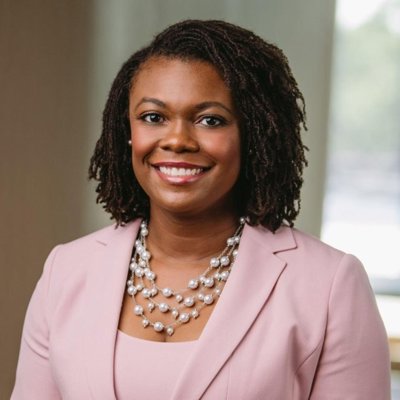
La'Jessica Stringfellow
President

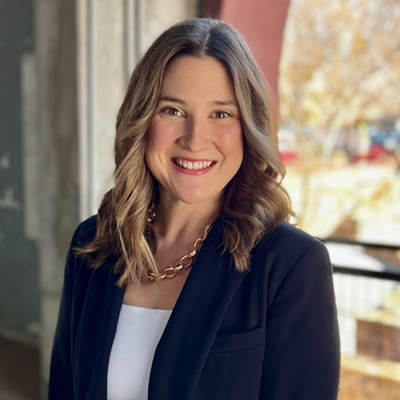
Mary Catherine Harbin
President-elect

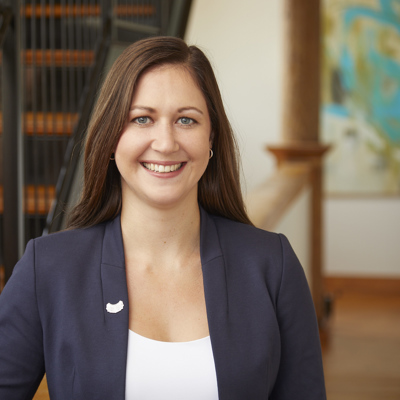
Samantha Albrecht
Secretary/Treasurer


Paul M. Burch, Jr.
YLD Immediate Past President
Circuit Representatives

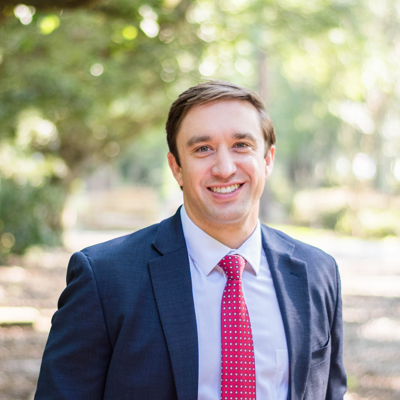
Wilson Jackson
1st Judicial Circuit (Charleston)

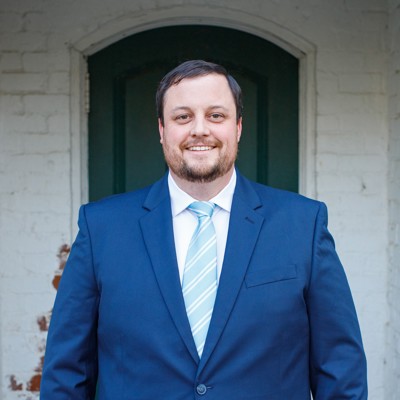
Zachary J. Moulton
2nd Judicial Circuit (Aiken)

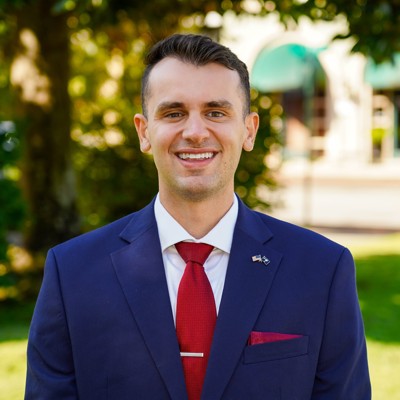
Jacob Dippold
3rd Judicial Circuit (Sumter)

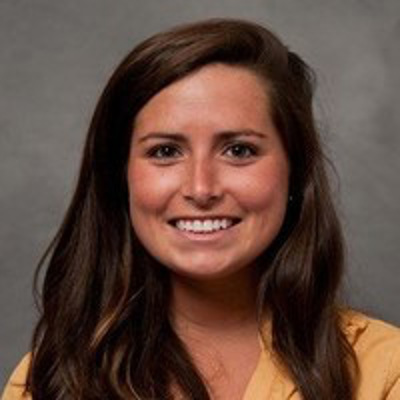
Allison Truitt Burch
4th Judicial Circuit (Chesterfield)

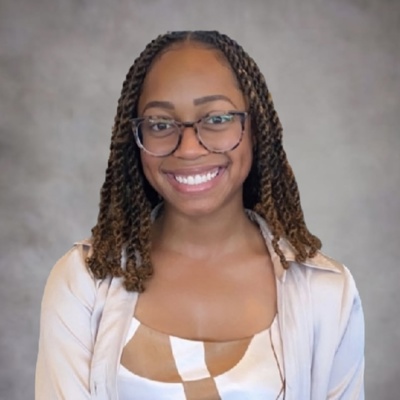
Sheniya Marshall
5th Judicial Circuit (Columbia)

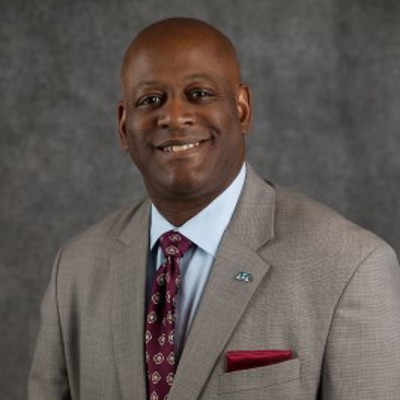
Brian Jenkins
6th Judicial Circuit (Lancaster)

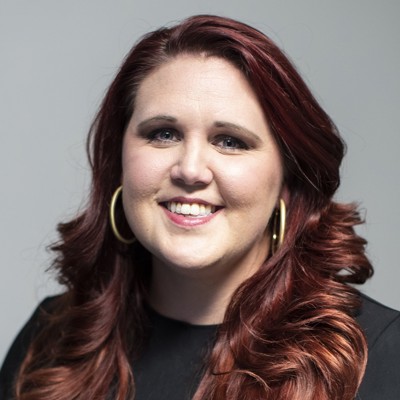
Chelsea Rikard
7th Judicial Circuit (Spartanburg)

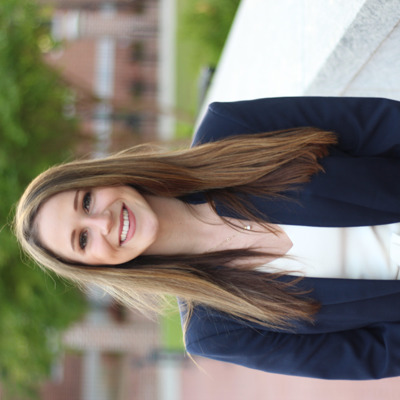
Mary Driggers
8th Judicial Circuit (Laurens)

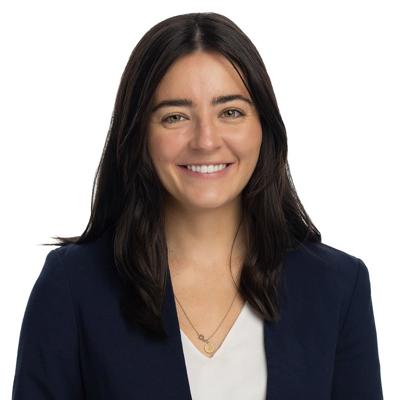
Abigail Toohey
9th Judicial Circuit (Charleston)

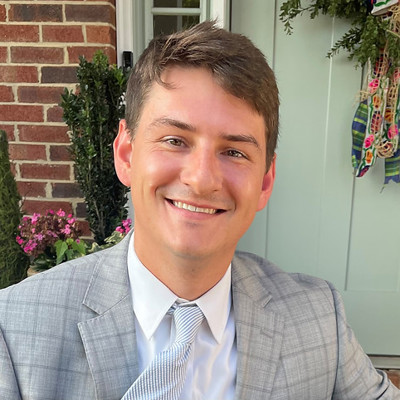
Chase Kinsey
10th Judicial Circuit (Anderson)

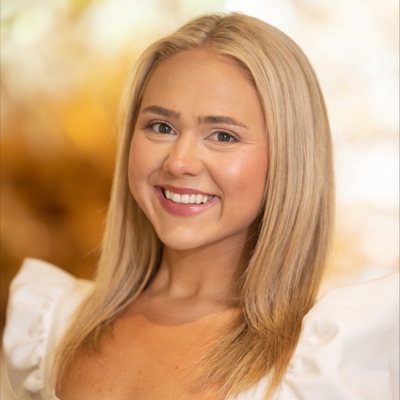
Melissa Byars
11th Judicial Circuit (Lexington)

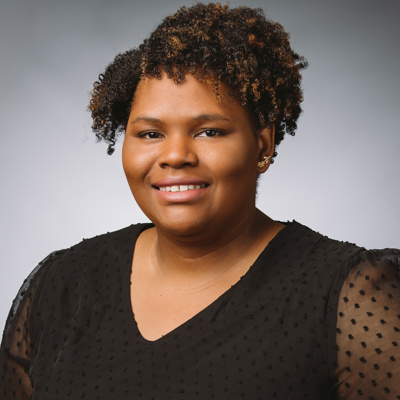
Adrian Peguese Carter
12th Judicial Circuit (Florence)

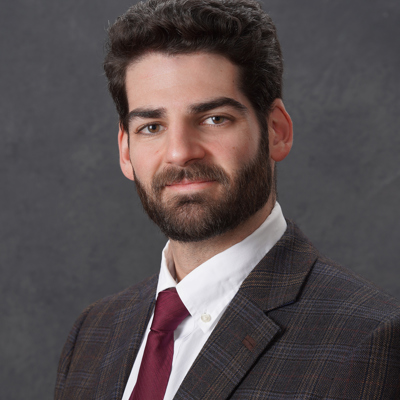
Jonathan Umbriano
13th Judicial Circuit (Greenville)

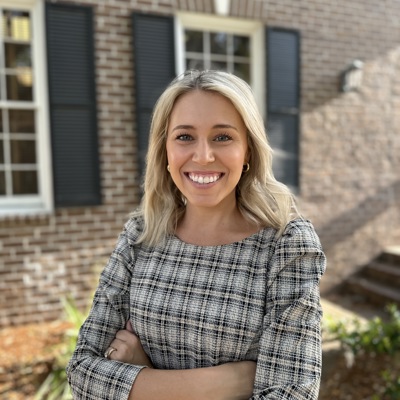
Haley Finneran
14th Judicial Circuit (Beaufort)

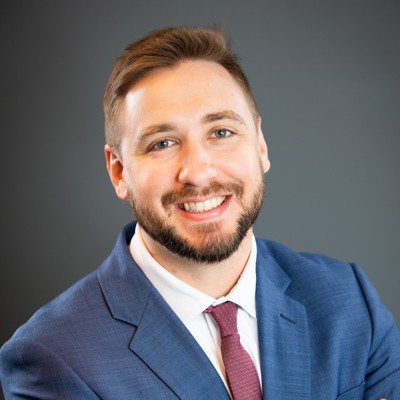
Ryne “Josh” Kochan
15th Judicial Circuit (Myrtle Beach)

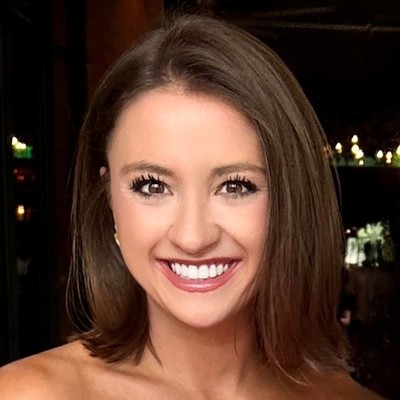
Peri Imler
16th Judicial Circuit (York)

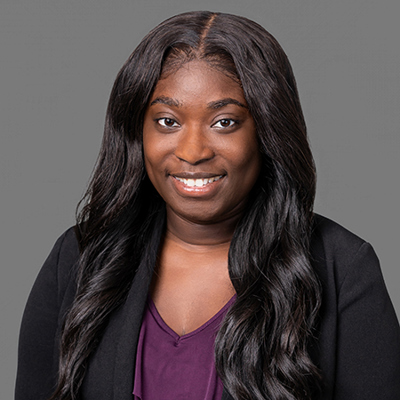
Sha'Mya LaTaye Green
Out-of-State Representative
1974-75 Richard A. Gantt
1975-76 James M. Brailsford Jr.
1976-77 William S. Davies Jr.
1977-78 David W. Edwards
1978-79 John J. Kerr
1979-80 J. Hamilton Stewart III
1980-81 Kenneth M. Suggs
1981-82 Wesley A. Stoddard
1982-83 Peter L. Murphy
1983-84 Kenneth E. Young
1984-85 Henry B. Smythe Jr.
1985-86 D. Michael Kelly
1986-87 Martha McElveen Horne
1987-88 Joel H. Smith
1988-89 Lanneau Wm. Lambert Jr.
1989-90 C. Allen Gibson Jr.
1990-91 Abigail R. Rogers
1991-92 Lana H. Sims Jr.
1992-93 Amie L. Clifford
1993-94 Amy Campbell Kelly
1994-95 David W. Whittington
1995-96 Michael G. Olivetti
1996-97 James D. Myrick
1997-98 J. Calhoun Watson
1998-99 Mark C. Joye
1999-00 Angus H. Macaulay
2000-01 A. Jackson Barnes
2001-02 J. Michelle Childs
2002-03 A. Victor Rawl Jr.
2003-04 Robert B. Varnado
2004-05 Leah B. Moody
2005-06 Jennifer L. Mallory
2006-07 DeAndrea G. Benjamin
2007-08 S. Venus Poe
2008-09 Tiffany Spann-Wilder
2009-10 Fred W. “Trey” Suggs III
2010-11 Tina N. Herbert
2011-12 Rebecca A. Roser
2012-13 Floyd S. “Trey” Mills III
2013-14 William “Will” R. Johnson
2014-15 Lynsey T. Kmetz
2015-16 Patrick C. Wooten
2016-17 I. Ryan Neville
2017-18 Lindsay Joyner
2018-19 Ashleigh Wilson
2019-20 Sheila M. Willis
2020-21 Perry T. MacLennan
2021-22 Jeanne Marie Tankersley
2022-23 M. Paige Chamberlain Ornduff
2023-24 Taylor Gilliam
2024-25 Paul M. Burch, Jr.
Service to the Public
The Cinderella Project involves gathering donations of gently-worn formal gowns, shoes and accessories to benefit high school students across South Carolina. Students from area high schools are invited to attend a boutique held in the spring to “shop” for a dress and other accessories at no cost. Members of this committee coordinate with local boutiques, community organizations, other legal associations and law firms for collection of the dresses and solicitation of donations. Members will also organize the boutiques and assist the belles of the ball as they shop on the day of the boutique.
The Pro Bono provides educational and practical pro bono opportunities for young lawyers to provide services to South Carolinians. The committee collaborates with the South Carolina Bar Pro Bono, South Carolina Legal Services, and the pro bono offices at the USC Joseph F. Rice School of Law and Charleston School of Law to provide pro bono opportunities to young lawyers.
As a member of the Pro Bono Committee, you will have the opportunity to:
• Organize educational opportunities for young lawyers
• Organize pro bono opportunities around the state, such as wills clinics, expungement clinics, and license reinstatement clinics
The Community Outreach Committee promotes outreach by facilitating and encouraging young lawyer participation in volunteer and sponsorship opportunities, partnerships with community organizations, programs, and more. This committee organizes YLD’s participation in Community Law Week during the first week of May, partners with organizations to educate South Carolina about the law, and raises awareness about adoption, foster care, food insecurity, and local organizations that provide pro bono legal services.
As a member of the Community Outreach Committee, you will have the opportunity to:
• Organize educational programs and events for young lawyers and the Bar.
• Collaborate with SC Bar Foundation recipient organizations to organize and provide educational and outreach opportunities to the community.
The Student Outreach Committee is committed to educating students about both the law and the practice of law. We believe that by engaging with students at an early age, we can help build a pipeline of future attorneys who are passionate about upholding our legal system. Moreover, we can introduce the profession to students and foster an inclusive environment for students to recognize their potential to become an attorney, while participating in events that provide an opportunity to cultivate knowledge and skills that will aid them in future legal practice.
The Voices Against Violence Committee educates young lawyers and the public about the challenges victims of violent crime face. This committee encourages advocacy for victims through pro bono services, CLE seminars, and providing hands-on support to programs that aid victims of violence.
The purpose of this committee is to provide free tax preparation for South Carolina residents with annual total household income of $52,000 or less. Members of this committee receive training to prepare basic federal and state income tax returns in various communities throughout the state and assist the chairs with recruiting other lawyer volunteers to participate in the tax preparation “Super Saturdays.” The training will be sponsored and conducted by the Columbia Cooperative Ministry, the United Way of Greenville County or the Charleston Trident Urban League, which operate VITA sites.
Service to the Bar
The purpose of the Diversity Committee is to advocate and support diversity in the legal community, to facilitate opportunities for law students and YLD members to grow in their own understanding of diversity, and to promote equality of opportunity for all. The committee is dedicated to creating a more inclusive legal community grounded in respect and appreciation for individual differences. The committee endorses a broad definition of diversity and seeks to create a dialogue through programs and resources that enhance knowledge and encourage understanding of diversity. The most commonly known of these programs is the Diversity Committee’s Lunch and Learn Series, which brings in lawyers and other speakers from a variety of backgrounds to discuss a particular topic. Topics have included discussion on mental health, LGBTQ issues, interactions with law enforcement, and the 2016 Presidential Election and the Hispanic community.
The Professional Development and Membership Events Committee coordinates professional development opportunities, member networking events, family friendly events, and lunch and learns. The continuing goal of this committee is to assist young lawyers in becoming successful in the legal profession by facilitating networking opportunities with other young professionals and providing educational opportunities that focus on relevant issues relating to the profession. These events can vary from after work events with other young professional organizations, lunch and learn events for YLD members, and opportunities for soft skills enhancement, business etiquette tips, business development coaching, and more.
Over the last five years, the Professional Development Committee has hosted a monthly lunch series at a few of the federal courthouses in the state, through a partnership with Judge Duffy and Judge Childs. Some young professional organizations that the Professional Development Committee works with are the Young Bankers Division, the SC Association of Certified Public Accountants, and the National Association of Insurance and Financial Advisors of South Carolina. Previously, the committee has hosted “Brews and News” across the state, where young lawyers gathered at a local brewery to enjoy good beer and hear an informative talk by local practitioners on topics pertinent to the practice of law, such as networking and personal branding.
As a member of the Professional Development and Membership Events Committee, you will have the opportunity to:
• Organize practical professional development events for young lawyers.
• Organize networking opportunities for young lawyers with the Bar and other young professionals.
Members of this committee prepare and update YLD publications and facilitate marketing of the YLD, not only among the Division’s members but also to all Bar members and to the public. The committee is responsible for the Division’s newsletter, South Carolina Young Lawyer, which is distributed quarterly to all YLD members and is published on the SC Bar’s website. South Carolina Young Lawyer has received national awards and recognition for the content provided to YLD members. The newsletter contains committee reports, upcoming events, member spotlights and practice tips, among other valuable information.
The Special Projects Committee promotes YLD’s involvement with the SC Bar Convention by planning, organizing and implementing a CLE program and an attendance incentive event. The CLE component will offer a program that is of interest to young lawyers and provide at least three CLE credit hours for attendees. The attendance incentive event will be a social gathering for members of the YLD, their guests, a select group of past-YLD presidents and members of the judiciary. Its purposes are to increase young lawyer participation at the Convention and in Bar/YLD activities. Additionally, the committee will be responsible for planning and organizing a meeting for the YLD Executive Council, committee chairs and co-chairs at Convention, among other projects as determined by leadership.
The Wellness Committee provides programming for young lawyers that promotes mental, emotional, physical, and social wellbeing. This committee strives to provide resources and tools to young lawyers that address work/ life balance, stress management, mental health, alcohol and substance use issues, physical health and wellbeing, and other quality of life practices. The YLD’s Wellness Committee collaborates with the Bar’s Wellness Committee and Lawyers Helping Lawyers to develop programs and events.
As a member of the Wellness Committee, you will have the opportunity to:
• Organize educational programs and events for young lawyers and the Bar.
• Collaborate with the SC Bar Wellness Committee and Lawyers Helping Lawyers.
YLD Member Resources

Leadership
The Executive Council is the governing body of the Division. The Executive Council is composed of a president, president-elect, secretary-treasurer, immediate past president, an out of state circuit representative, a circuit representative from each state's judicial circuit, the ABA/YLD representative (in alternating years), a law student representative for the University of South Carolina Law School and from the Charleston School of Law, and others appointed by the Division President during his or her term as President.

Affiliations
The Division is an affiliate of the Young Lawyers Division of the American Bar and sends representatives to the annual and midyear meetings and to spring and fall meetings of the Affiliate Outreach Project. As a member of the American Bar Association Young Lawyers Division, the South Carolina Bar YLD and its affiliated organizations shares District 10 with the U.S. Virgin Islands. There are currently seven local young lawyer affiliates, in addition to the SC Bar YLD and the U.S. Virgin Islands in District 10.

Projects
The Young Lawyers Division has sponsored and continually strives to sponsor projects, which have a positive impact upon South Carolina's communities. It has been recognized by the ABA in national competition for its various service projects. Racial tolerance, diversity, drugs, domestic violence, and mentoring are only a few of the public service issues that have been addressed. These issues and others directly related to young lawyer practice remain on the agenda of the Division.
